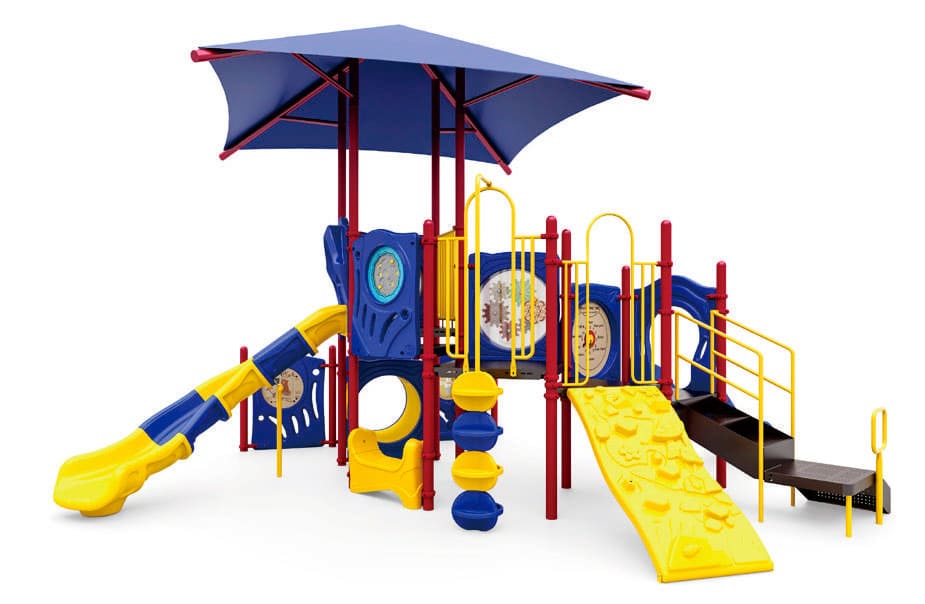Playgrounds are essential spaces in schools, as they offer students the opportunity to play, socialize, and develop physical and cognitive skills in a fun way. In recent years, modular playgrounds have gained popularity in education for their numerous advantages and benefits, from promoting creativity and physical activity to fostering teamwork and experiential learning; these innovative play spaces play a vital role in the holistic development of children and in creating enriching and stimulating educational environments. Here are the main advantages of opting for modular playgrounds in schools.
Flexibility and Customization
One of the most significant benefits of modular playgrounds is the power they give to students to adapt and customize the design according to their specific needs and preferences. These modular systems allow for various configurations and play elements that can be adjusted to meet students’ ages, interests, and abilities. Additionally, modular playgrounds offer the ability to create multi-functional spaces adapted for different uses and activities. From traditional playgrounds to seating areas and green spaces to outdoor reading nooks, these playgrounds provide versatility to meet the educational and recreational needs of the school, empowering students to shape their learning environment.
Promoting Physical Activity
Childhood obesity and sedentary lifestyles are pressing issues in our society. In this context, modular playgrounds are not just play areas but powerful tools in the fight against these health concerns. They are designed to encourage students to engage in physical activity and outdoor play, promoting an active and healthy lifestyle from an early age. With various play options involving movement, balance, and coordination, these playgrounds are a beacon of hope in the battle against childhood obesity and sedentary lifestyles.
The modular playgrounds are designed to encourage children’s physical, cognitive, and social development. The different play elements, such as swings, slides, climbing frames, and interactive games, contribute to developing motor skills, coordination, balance, creativity, and teamwork.

Experiential Learning
Modular playgrounds become experiential learning environments where children can practically apply the knowledge acquired in the classroom. Through spontaneous play and active exploration, students develop sensory, cognitive, and motor skills while having fun and enjoying their playtime. Likewise, teamwork is encouraged, as the games and activities on the modular playgrounds require cooperation and collaboration among the children. Students learn important social skills such as teamwork, communication, empathy, and mutual respect by interacting with their peers in group games, shared swings, or team climbing structures.
As a complement, modular playgrounds foster children’s creativity and imagination by providing a diverse and stimulating play environment. With elements such as themed play areas, interactive panels, and innovative climbing structures, children can explore, experiment, and create their adventures, promoting the development of their cognitive skills and problem-solving abilities.
Safety and Durability
Modular playgrounds are designed with high-quality materials and comply with established safety regulations. These systems are durable and weather-resistant, ensuring a safe and secure environment for students during play activities. In addition, they require minimal maintenance and are easy to repair in case of minor damage. The modular components can be replaced individually, making it easy to upgrade and renovate the playground without changing the entire system.
Community Involvement, Inclusion, and Diversity
Modular playgrounds are not just about play. They are about building communities, fostering inclusivity, and promoting diversity. The process of building and designing a modular playground can be a community project involving students, parents, teachers, and community members. This collaborative effort strengthens the school and community bonds, promoting a sense of belonging and partnership. Moreover, these playgrounds are designed to be inclusive, with adapted elements for students with special needs or disabilities. They are a testament to the school’s commitment to creating a safe and fun space for all, promoting an inclusive and diverse school environment.
What did you think of this topic? Do you want to know more about modular playgrounds?
If you want a modular playground for your project, community, school, daycare, or public park, contact us by visiting the following link.